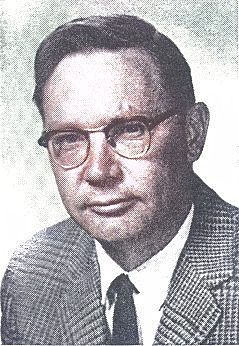James E. McDonald: A Pioneer in UFO Research and Atmospheric Science
James Edward McDonald (1920–1971) was a remarkable figure whose contributions spanned the fields of atmospheric science and UFO (Unidentified Flying Object) research. With an insatiable curiosity and dedication to uncovering the truth, McDonald left an indelible mark on both scientific communities.
Born on May 7, 1920, in Duluth, Minnesota, McDonald exhibited an early passion for the natural world. He pursued his academic interests at the University of Chicago, where he earned a Ph.D. in meteorology in 1953. Armed with a deep understanding of atmospheric physics, he embarked on a distinguished career that ultimately led him to the University of Arizona, where he became a professor of meteorology.
McDonald's scientific work primarily revolved around understanding atmospheric phenomena such as lightning, clouds, and cosmic rays. He made notable contributions to the field, publishing numerous papers and earning accolades for his research. His innovative insights into thunderstorm electrification and cloud physics paved the way for advancements in weather prediction and atmospheric science.
However, McDonald's interests extended beyond traditional meteorology. Intrigued by reports of UFO sightings and encounters, he became one of the pioneering researchers in the study of unidentified flying objects. McDonald's foray into UFO research was not without skepticism from his scientific peers, who often dismissed the topic as lacking credibility. Undeterred, McDonald tirelessly investigated UFO incidents, aiming to bring scientific rigor to a field often shrouded in sensationalism.
One of McDonald's most notable contributions to the UFO research community was his appearance before the United States Congress in 1968. He presented evidence and arguments for the scientific study of UFOs, urging lawmakers to allocate resources for systematic research. McDonald's testimony was instrumental in highlighting the need for unbiased investigation into these mysterious aerial phenomena.
Tragically, McDonald's relentless pursuit of truth took a toll on his health. Frustrated by the lack of support for his UFO research and disillusioned by the scientific establishment's reluctance to engage with the topic, he began to experience personal and professional challenges. Sadly, on June 13, 1971, McDonald took his own life, leaving behind a legacy of groundbreaking scientific work and a deep commitment to unraveling the mysteries of the skies.
In the years since his passing, James E. McDonald's contributions have not been forgotten. His dedication to both atmospheric science and UFO research continues to inspire new generations of scientists and researchers. The scientific community has become more open to exploring unconventional topics, thanks in part to McDonald's advocacy for rigorous investigation and open-minded inquiry.
James E. McDonald's life serves as a testament to the power of curiosity and the pursuit of knowledge, even in the face of skepticism and adversity. His dual roles as a pioneering atmospheric scientist and a dedicated UFO researcher highlight the complex intersections between science, belief, and the unexplained. As we reflect on his legacy, we are reminded of the importance of approaching all areas of inquiry with an open mind and a commitment to uncovering the truth, no matter where it may lead.

Comments
Post a Comment